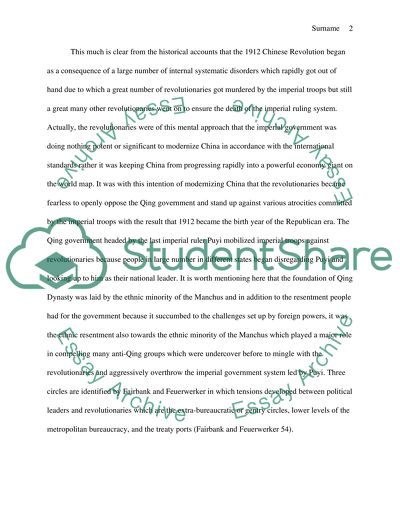Revolution of 1912 in China Research Paper Example | Topics and Well Written Essays - 500 words. Retrieved from https://studentshare.org/history/1593917-revolution-of-1912-in-china
Revolution of 1912 in China Research Paper Example | Topics and Well Written Essays - 500 Words. https://studentshare.org/history/1593917-revolution-of-1912-in-china.


